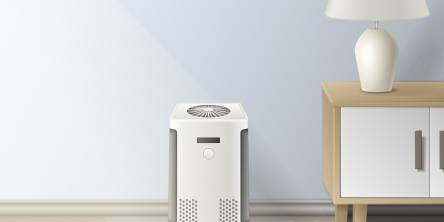5 Green Tips to Eco-Proof Your Home
When you're ready to start a sustainable lifestyle, one of the first things to try is going green in your home. Your home is where you eat, sleep and spend time with your family, and going green here will yield far-reaching results.
Creating an energy-efficient and green home is simpler than you think. You can easily start with choosing organic food, chemical-free products and energy-efficient appliances. Making green changes will help you save money, keep you healthy and make a positive impact on the world.
1. Energy Conservation
Conserving energy at home is easy with some simple changes. You can start by scheduling a professional home energy audit. This will help identify areas where you can make improvements such as adding insulation. Then you can take additional steps that will help you save energy:
- Lower your thermostat in the winter and raise it in the summer to reduce utility costs.
- Switch to efficient compact fluorescent light (CFL) or LED lights, which use a fraction of the energy an incandescent bulb uses.
- Turn off the lights when you're not in a room and unplug appliances that aren't in use.
- Consider replacing appliances that are more than 10 years old with ones that are Energy Star rated, as they use 50 percent less energy than the regular models.
- Use cold water when doing the laundry.
- Use a drying rack or outdoor clothesline rather than the dryer.
- Keep your appliances in top shape and schedule regular maintenance such as air filter changes to improve efficiency.
- Use ceiling fans to create a wind-chill effect that help you feel cooler; they use less energy than the air conditioner.
2. Waste Reduction
By reducing your household waste, you can lessen the landfill burden. The best way of reducing waste is by recycling, reusing and composting as much as you can. Start by setting up separate bins for recycling paper, plastic and metal.
Try reducing the amount of food that goes to waste by cooking and serving smaller portions. Instead of throwing away food and yard waste, compost it and use in your garden as a natural fertilizer for your plants.
Eliminate household hazardous waste by participating in community disposal programs and reconsidering what you use, sometimes there may be a safer alternative. Use the same cell phone or computer as long as you can and recycle them when they break or become obsolete. Electronic waste contains toxic elements such as mercury, which contaminates the environment. Recycling electronic products reduces the amount of resources needed for manufacturing new items and lowers greenhouse gas emissions.
3. Water Conservation
Almost 50 percent of a typical home's water is wasted. There are many ways you can reduce your water use, saving your money and conserving this valuable resource:
- Fix leaky faucets, as they waste a gallon or more of water per hour.
- Take shorter showers, which lowers your heating and water bills.
- Use an aerated shower head to reduce water flow.
- Turn off the water during tooth brushing, shaving or shampooing.
- Upgrade to a dual flush or low-flow toilet.
- Recycle household "gray" water to water plants or flush the toilet.
- Collect rainwater in a cistern or rain barrel and use it for watering plants.
4. Stay Free of Chemicals
Convectional cleaners contain harmful chemicals which can pose a serious threat to your health and the environment. Opting for plant-based, organic cleaners is a much safer choice. You can also try making your own green cleaners with natural ingredients such as baking soda, vinegar, lemon juice and essential oils. This preserves your family’s health, boosts indoor air quality, saves money and time, and reduces packaging.
Harsh chemicals can even be found in personal care products and many people aren’t aware of the fact they may cause allergies or even cancer. The chemicals in these products aren’t good for the environment either. Always read the labels of your products and switch to organic personal care products.
5. Educate Yourself and Your Family
Learn about why green living matters and what are some other things you can do to be more green. Teach your family about the importance of preserving the environment and show them what exactly can be done. You can also spend time volunteering in the community and let your example inspire others.
Final Word
Every day, each small action you take can play a big role in preserving the environment. Going green in your home will not only benefit nature but it will also contribute to your family’s health and save you money. Green is the way of the future and now is the perfect time to start.
Similar Articles
The world of backyard chicken keeping involves more than just providing shelter and protection; it extends to carefully curating a balanced and nutritious diet for these feathered companions. In recent times, there's been curiosity about the inclusion of fruits in a chicken's diet,
Ensure warmth all winter! Trust your expert furnace repair in Newmarket for seamless solutions. Your key to enduring comfort during chilly days.
Learn these 5 essential tips for porch swing care and maintenance. Keep your outdoor oasis in top shape with expert advice.
The bond between grandparents and their grandchildren is truly unique and special. One of the most joyous occasions in a grandparent's life is celebrating their grandchild's birthday. As the years go by, the memories made during these celebrations become cherished treasures for both generations.
Reaching the milestone of a 50th birthday is a momentous occasion in anyone's life. It signifies half a century of experiences, wisdom, and cherished memories. When it comes to celebrating the 50th birthday of a dear friend, finding the right words to express your love, admiration, and well wishes can be a beautiful gesture.
Learn about the dangers of pressure cooker explosions and the legal ramifications involved. Get insights on the risks and how to stay safe. Read more now.
Looking to upgrade your heating system? Discover the benefits of installing an electric furnace, from cost savings to energy efficiency. Learn more here.
Deciding to move is a big decision. How can you be sure the new city is worth it? Will you find a house to call home? Will it be worth all the packing and stress? There’s so much uncertainty.
Are you looking to improve the air quality in your home? You may have heard of air purifiers and air sanitizers, but do you know the difference between an air purifier vs air sanitizer? What are the benefits of each? How do you know which one to buy?


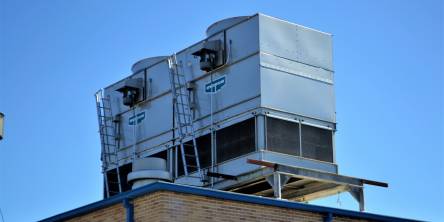
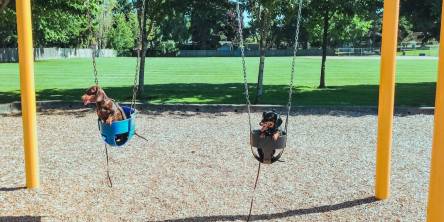


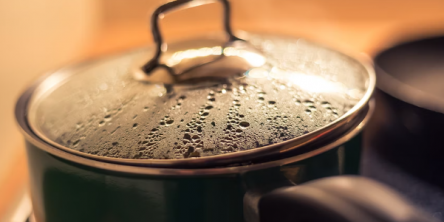
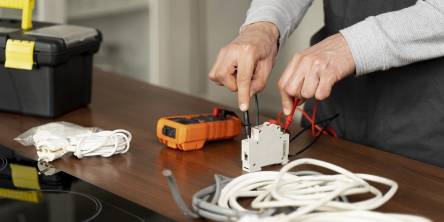
5033.jpg)
